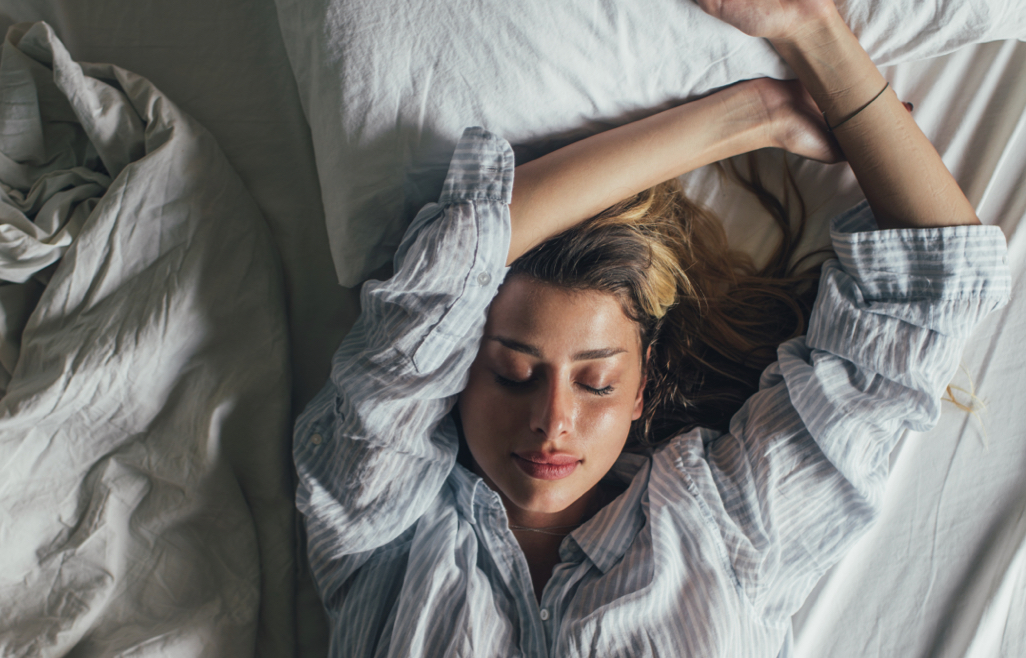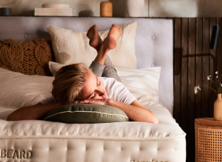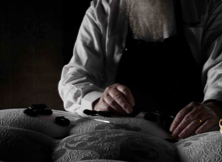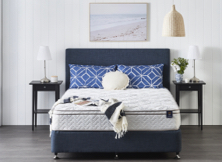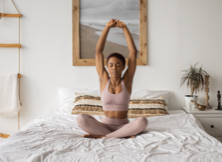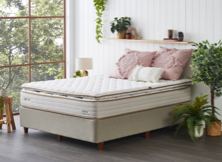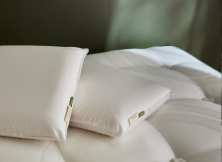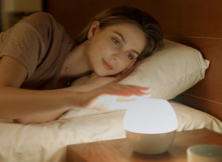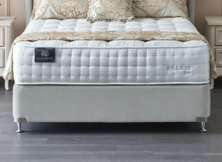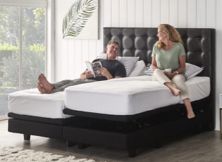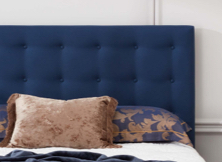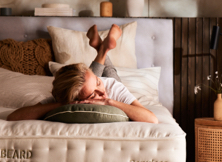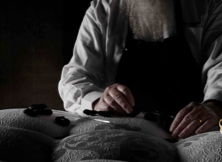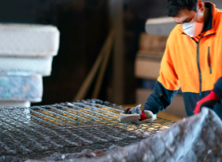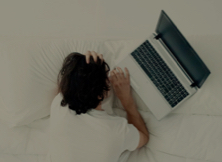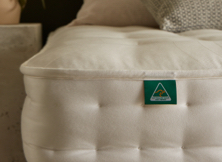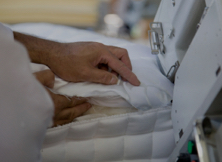This Mental Health Month, we’re exploring the relationship between sleep and mental health with our partners at Beyond Blue.
Ben Farinazzo is passionate speaker and mental health advocate with Beyond Blue – an organisation that was integral to his recovery journey. Through sharing his inspiring story, Ben offers hope and guidance to people on a similar mental health and sleep wellness journey.
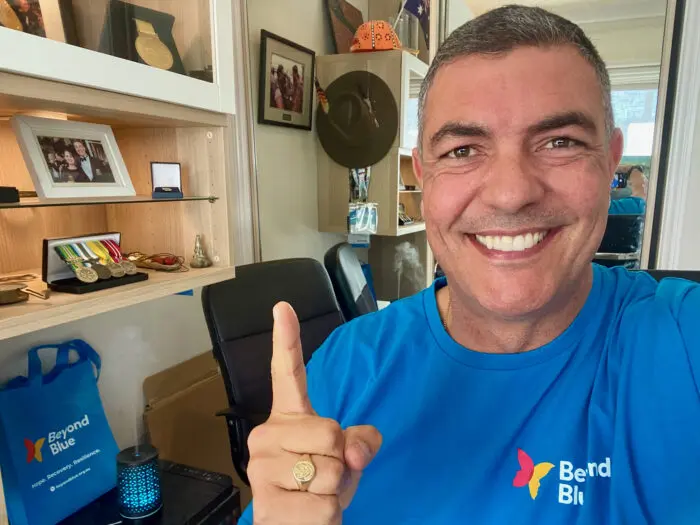
In navigating the aftermath of military deployment, I found myself in an unexpected struggle with mental health that profoundly impacted my sleep. Returning home, I was haunted by night terrors and caught in an agonizing cycle where my mental state and sleep deprivation fed into each other, leaving me physically drained and emotionally frayed. This ongoing battle was marked by days blurred into nights and a constant sense of wading through an unending storm. Desperate for relief, I turned to quick fixes, like coffee and alcohol, that only knotted the problem further.
Realizing the necessity for change, I sought professional guidance, which became a turning point in my journey towards healing. With tailored strategies—from adopting regular sleep routines, engaging in mindfulness practices, making significant lifestyle changes, such as limiting stimulants and optimizing my sleep environment, to addressing an underlying sleep apnoea condition with a CPAP machine—I progressively reclaimed the restorative sleep that had once felt out of reach.
Now, I steadfastly prioritise sleep as a fundamental pillar of my overall mental health strategy. I’ve learned to listen to my body and mind, making sleep non-negotiable in my self-care routine. Should I detect signs of waning mental health, I am proactive in recalibrating my commitments to safeguard my sleep. With ongoing support from a Sleep Doctor and adherence to carefully crafted practices, I’ve learned the art of balancing life’s complexities to foster both sound sleep and mental resilience.
In essence, this journey taught me that sleep, far from being a mere nightly routine, is a central player in the narrative of our mental well-being—a lesson that has reshaped my life.
How has you mental health journey impacted you sleep?
I remember the joy of being one of those people that could sleep through anything, and then it all changed.
When I returned home from my military deployment to East Timor I was plagued by night terrors which would leave me drenched in cold sweat and tears. I struggled to understand this change, this uninvited shadow that loomed over me.
Depression weighed me down while anxiety tightened its relentless hold, making both falling and staying asleep a nightly battle. During the day it felt like I was in an enduring storm, trudging through thick mud, with no respite in sight.
Soon the lines between day and night blurred, and my nightmares seemed to breach the fragile barrier into my waking reality. Deprived of sleep, I could feel my world gradually crumbling around me.
I needed help.
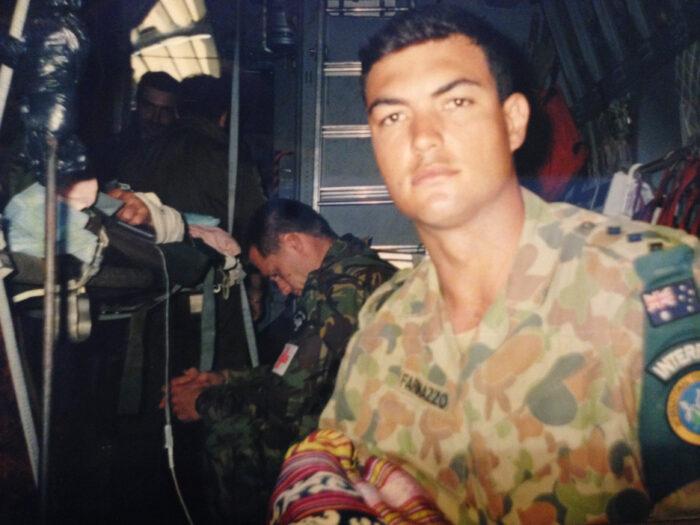
My sleep and mental health were locked in an incessant tug-of-war. It was a vicious cycle: my mental well-being influenced my sleep, but then the sleep deprivation took a toll on my mental health.
This feedback loop led to unpredictable shifts in my mood and behaviour. I couldn’t work out what was happening.
Desperately trying to cope, I found myself guzzling coffee throughout the day to combat the fatigue, only to resort to alcohol in the evenings to induce sleep.
This sleep deficit made me restless and snappy. I yearned for an escape from the constant noise and the weight of expectations, a sanctuary where my mind could find peace. I knew I needed to unravel this tangled web, to carve a path towards healing and restoration.
I just didn’t know how.
What was some helpful advice you received throughout your journey with mental health and sleep?
Thankfully I was able to receive help and support that changed and most likely saved my life. I found that the journey to improving both sleep quality and mental health was not a linear one. Over time, with assistance and insights, I implemented several changes that played pivotal roles in my healing:
• Professional Guidance: I sought help from a therapist who specialized in trauma and sleep disorders. They taught me to modify behaviours and beliefs that hindered sleep.
• Mindfulness and Meditation: Incorporating daily mindfulness exercises and meditation routines before bed helped calm my anxious thoughts, grounding me and preparing my mind for a restful sleep.
• Establishing a Routine: I started sticking to a consistent bedtime and wake-up time, even on weekends. This helped regulate my internal clock and improve my sleep consistency.
• Limiting Stimulants: I drastically cut back on caffeine, especially in the latter half of the day. Additionally, I limited alcohol consumption, recognizing its disruptive effects on my sleep cycle.
• Bedroom Environment: I transformed my bedroom into a sanctuary for sleep: ensuring it was dark, quiet, and cool. We invested in an air filter that provided not only improved air quality but white noise that blocked out other external sounds.
• Limiting Screen Time: I reduced exposure to screens at least an hour before bed, understanding that blue light can interfere with the production of melatonin, a hormone that regulates sleep.
• Physical Activity: Regular exercise helped me combat anxiety and depression, and in turn, improved my sleep. However, I avoided intense physical activity close to bedtime.
• Journaling: Before bedtime, I wrote down my anxieties and reflections in a journal. This act served as a therapeutic release, allowing me to process emotions rather than ruminating.
• Educating Myself: I read extensively about sleep and its relation to mental health. This empowered me with knowledge, allowing me to make informed decisions and changes.
• Sleep Apnoea. I spoke to a sleep doctor and completed a sleep test. I found that I had sleep apnoea and was prescribed a CPAP (Continuous Positive Airway Pressure) machine that significantly improved my sleep quality and reduced daytime fatigue.
• Bed and Pillow: We invested in a high-quality mattress and pillows to ensure a good level of support, security and comfort. This translated into a deeper, less disruptive sleep.
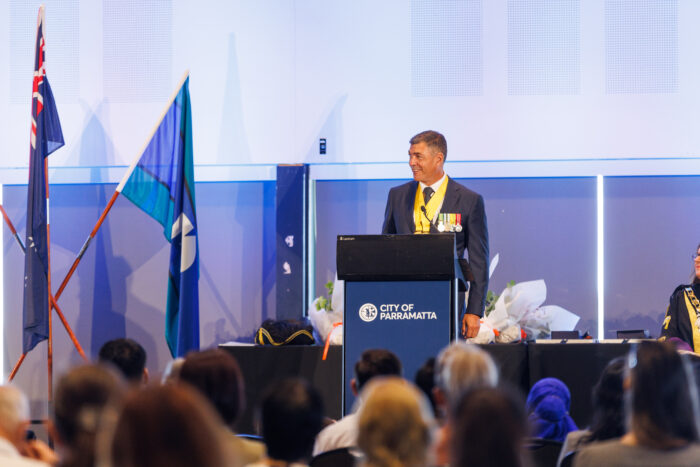
Over time, with these changes in place, I noticed a significant improvement in my sleep quality. As my nights became more restful, there was a positive ripple effect on my mental well-being during the day.
This journey taught me the undeniable link between sleep and mental health, and the importance of nurturing both.
I have learnt that maintaining mental health is a multifaceted endeavour that involves a balance of physical, psychological, social, and environmental factors.
This balance encompasses consistent exercise, a nutritious diet, a stable routine, stress-relieving practices, interpersonal connections, and when necessary, therapeutic interventions and medications.
From my personal journey, I’ve discerned that sleep stands as a pivotal element in mental well-being. Without ample and restful sleep, the effort to sustain other health-enhancing practices becomes substantially challenging.
Should I ever sense a dip in my mental wellness, my immediate response is to recalibrate, prioritizing sleep by reducing external commitments and re-establishing my sleep routine.
To further bolster my wellness strategy, I’ve sought expertise from a Sleep Doctor. The Sleep Doctor analyses and provides me feedback on the duration and quality of my sleep.
Through my CPAP machine, the doctor retrieves real-time data, offering a comprehensive view of my sleep habits
If you’re experiencing your own mental health and sleep challenges, we encourage you to reach out to our partner, Beyond Blue. Beyond Blue provide information, advice, support and referrals to help all people in Australia achieve their best possible mental health. For more information, visit www.beyondblue.org.au






